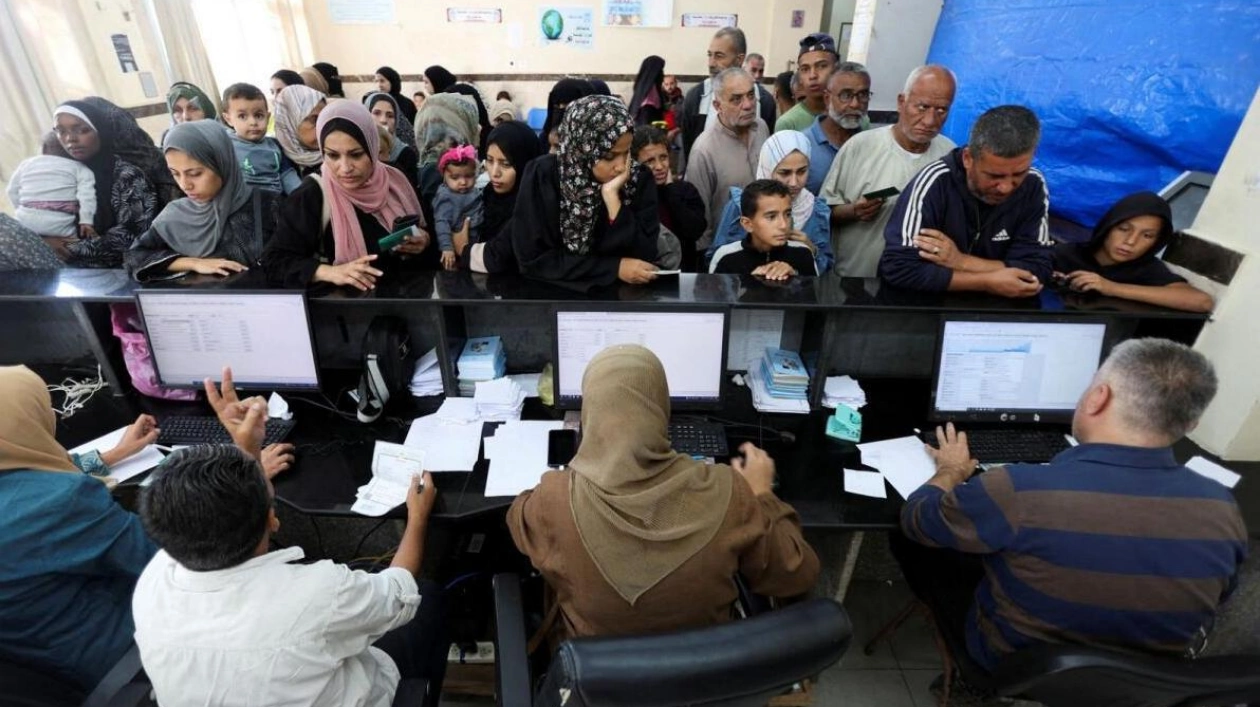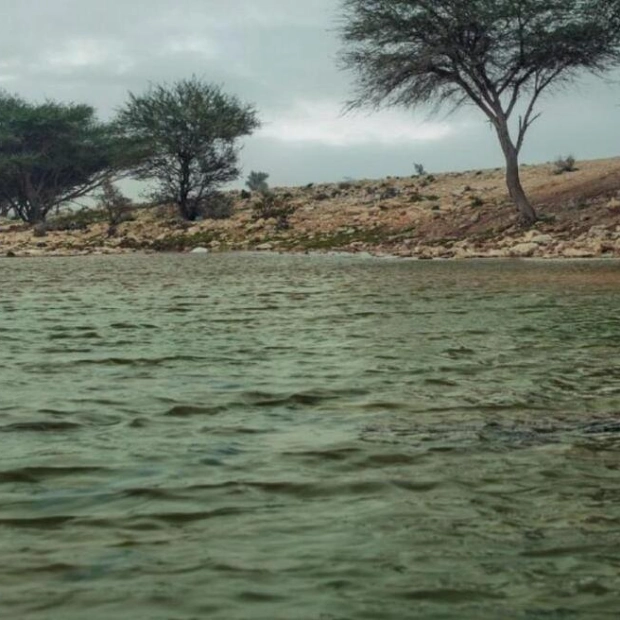Palestinians congregate to register for medical examinations at a health center operated by the United Nations Relief and Works Agency amidst the Israel-Hamas conflict in Deir Al Balah, central Gaza Strip, on October 29, 2024. — Reuters
Israel encountered escalating international condemnation on Tuesday following its parliament's approval of a bill prohibiting the primary UN aid agency for the battered Gaza Strip. Despite objections from the United States and warnings from the UN Security Council, Israeli lawmakers overwhelmingly endorsed the bill, which bans the United Nations agency for Palestinian refugees, UNRWA, from operating in Israel and annexed east Jerusalem. Israel tightly regulates all humanitarian aid deliveries to Gaza, and legislators also passed a measure forbidding Israeli officials from collaborating with UNRWA and its staff. UNRWA has furnished crucial aid, education, and healthcare across Palestinian territories and to Palestinian refugees elsewhere for over seven decades.
"There is a profound connection between the terrorist organization (Hamas) and UNRWA, and Israel cannot tolerate it," stated Yuli Edelstein, one of the bill's sponsors, during the parliamentary debate. Palestinian militant group Hamas, embroiled in conflict with Israel in Gaza, denounced the bill as an act of "Zionist aggression," while its ally Islamic Jihad described the ban as "an escalation in the genocide." Even several of Israel's Western allies expressed unease over the ban, with Prime Minister Keir Starmer stating Britain was "gravely concerned." Germany, a steadfast supporter of Israel's security, warned that the ban would "effectively render UNRWA's work in Gaza, the West Bank, and east Jerusalem impossible... jeopardizing vital humanitarian aid for millions."
UN chief Antonio Guterres cautioned that the Israeli law could have "devastating consequences" if enforced and "would likely hinder UNRWA from continuing its essential work." UNRWA chief Philippe Lazzarini warned that the vote "sets a dangerous precedent." Prime Minister Benjamin Netanyahu declared on social media that Israel was "prepared" to continue providing aid to Gaza "in a manner that does not compromise Israel's security." The ban coincides with ongoing hostilities in Gaza and Lebanon, where a second full-scale front opened last month. Earlier Monday, Netanyahu's office disclosed that Mossad intelligence chief David Barnea had met with US and Qatari mediators in Doha, where they agreed to engage Hamas in discussions about a potential deal to release Israelis abducted in the October 7, 2023, attack by Palestinian militants.
"In the coming days, further discussions will take place between the mediators and Hamas to evaluate the feasibility of talks and to advance efforts to promote a deal," Netanyahu's office announced. This statement followed two days after Egypt's President Abdel Fattah Al Sisi proposed a two-day truce and a limited hostage-prisoner exchange that he suggested could pave the way for a permanent ceasefire. However, Netanyahu later stated he had not received the Egyptian proposal. When asked about the possibility of a Gaza ceasefire, US President Joe Biden asserted: "We need a ceasefire. We should end this war. It should end, it should end, it should end."
During the October 7 attack, Palestinian militants seized 251 hostages, including soldiers and civilians, of whom 97 remain in Gaza. The Israeli ministry reports 34 of these are deceased. Netanyahu's government faces mounting pressure from both hostage families and the international community to agree to a ceasefire to enable the remaining hostages to return home. Under Sisi's proposed plan, "four hostages would be exchanged for some prisoners in Israeli jails," followed by further negotiations within 10 days aimed at securing "a complete ceasefire and the entry of aid" into Gaza. In Gaza, rescuers reported fresh strikes on Monday, while the Israeli military claimed it targeted the Jabalia refugee camp in the north, resulting in the deaths of dozens of militants.
Since October 6, the military has been conducting a fresh air and ground assault in northern Gaza to dismantle operational capabilities it asserts Hamas is attempting to rebuild there. An Israeli military official stated the objective was to clear Jabalia of militants, which "will take us at least (several) weeks" to accomplish. The official noted Israel was not compelling residents to evacuate, asserting that "the safer zone in the Gaza Strip is in the south, but it's up to them" to decide whether to relocate. However, the process has left 100,000 people trapped in a "siege," according to Gaza civil defence agency spokesman Mahmud Bassal, who stated late on Sunday: "For 22 days, not a drop of water or bread has entered the northern Gaza Strip."
Last year's October 7 attack resulted in the deaths of 1,206 people, predominantly civilians, according to an AFP tally of Israeli official figures. Israel's retaliatory offensive has claimed the lives of at least 43,020 Palestinians in Gaza, the majority of whom were civilians, according to figures provided by the Hamas-run territory's health ministry, which the United Nations deems reliable.
Source link: https://www.khaleejtimes.com






